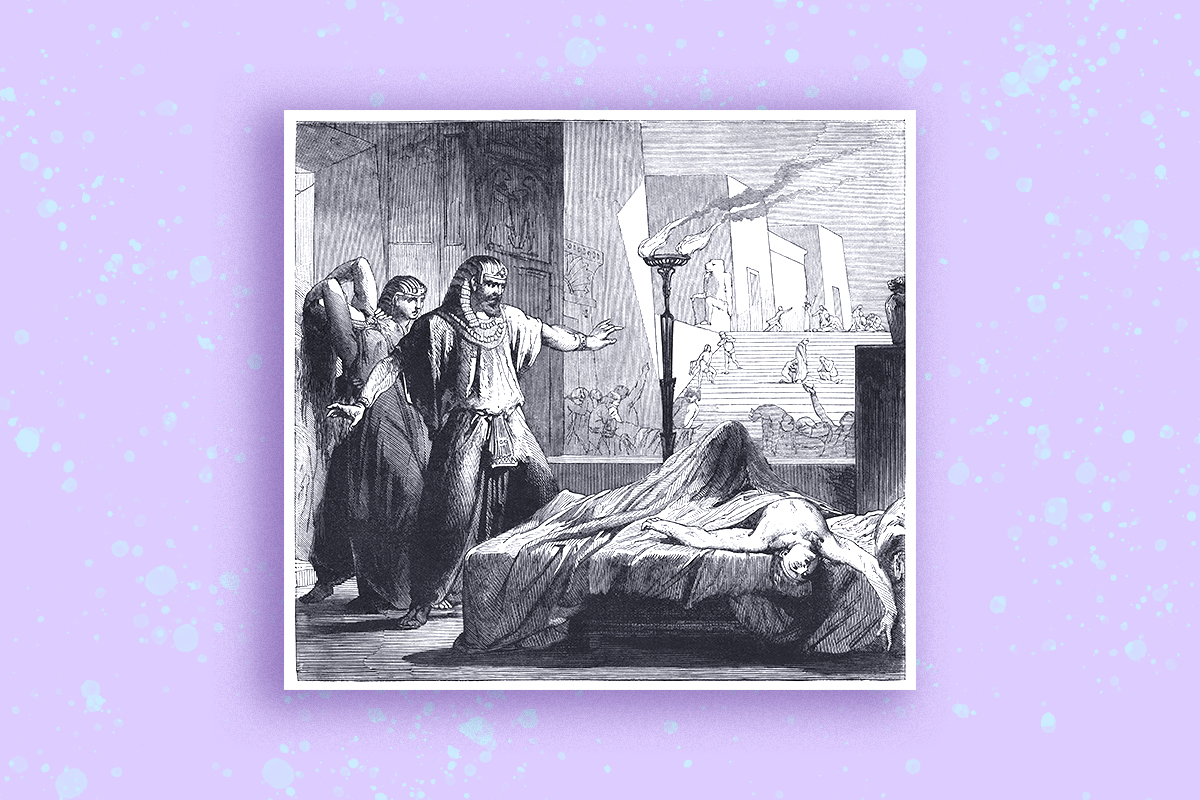Since early March, the Jewish interwebs have been joking about needing to practice urchatz, ritual hand-washing, more often during the seder this year. As Jews across the world adjust to life under various restrictions put in place for our health, it’s becoming clear that this year’s seders will be different from all other seders.
Passover has historically been a Jewish holiday whose observance has been heavily influenced by contemporary events. Not only is it one of the most important and popular Jewish holidays, but the main story of Passover, the Exodus story, is a story that remains relevant every year. We use the haggadah to tell the story of how the Jews left slavery in Egypt for the promise of a strange land, far away.
Though the Exodus story can be found in the Torah, our haggadahs often speak to more modern times. The Survivors’ Haggadah, for example, was used by Holocaust survivors in DP camps in 1946 and addressed the experiences of those who survived the Shoah, relating it to yeztiat mitzrayim, the Exodus from Egypt. The Szyk Haggadah had a similar mission: Written in the 1930s, it told about the rise of fascism in Europe using the Exodus story. Though this year, our fear is stoked by disease rather than fascist leaders (okay, maybe both), it’s clear we need to adapt the haggadah for our times.
Of all the traditional parts of the seder to embrace this year, the 10 Plagues should be given priority (although urchatz should not be disregarded — hand-washing is indeed extra important!). The 10 Plagues are, in my opinion, an essential part of the Exodus story, and they allow us to better understand Aaron and Moses as nascent Israelite leaders, following God’s instructions to lead the Israelites out of slavery in Egypt. The plagues, more importantly, allows us to understand Pharaoh, and in turn, the Egyptians.
The plagues begin when the water of the Nile, which was the main source of water (which was essential to life) in Egypt, turns into blood because Pharaoh refused to let the Israelites go. We learn about the next eight plagues — frogs, lice, flies, livestock, hail, boils, locust, and darkness — in a similar manner. Moses and Aaron (typically following God’s instruction) talk to Pharaoh. They ask him to let the Israelites go. Pharaoh says no. Egypt, and Egyptians in turn, are subject to a new plague.
Each new plague brings a different form of destruction to Egypt, threatening the fruits of the land, people’s bodily autonomies, and more. Each plague brings greater destruction, not just to Pharoah, who is the one who refuses to let the Israelites go, but to his subjects, the people he rules over.
It’s the killing of the firstborn, the 10th and last plague, that evokes a different reaction. It is, likewise, the only plague that precedes a discussion between Pharaoh and Moses, rather than following it. At last, the Israelites are able to leave Egypt. Yet permission to leave comes at a high cost. Every Egyptian firstborn, regardless of their age or socio-economic status, is killed. Their cries, upon realizing this horror, elicit Pharoah to tell Moses and Aaron that they not only can go, but should go. The Egyptians join in, urging Moses, Aaron, and the Israelites to quickly leave Egypt.
A common part of retelling the 10 Plagues is to spill one drop of wine (or grape juice) for each plague. One explanation for this is that we, as Israel, must understand that our wine, AKA joy, is diminished because we were saved due to the suffering of the Egyptians, which is a pretty radical idea when you think about it. Here we are, gathered for one of the most important Jewish holidays, and we must think about the lengths it took to secure our freedom rather than being free itself. We must remember that our freedom had a very real cost: human life.
But still, most years, we move on from the 10 Plagues and don’t spend a much more time thinking about everything the Eyptian people went through. Sometimes, we even turn the plagues into a fun activity for kids — handing out plague finger puppets or masks, throwing plastic frogs across our family tables.
This year, the pain of the Egyptians is more palpable than it’s been in a while, if ever. Each day there is a new onslaught of information about the dead, the dying, and the sick. This year, we must sympathize with the Egyptians more than ever. This year, we must be hyper-aware that freedom — from fear and from disease — as well as freedom to embrace our loved ones, to travel freely, to gather together, cannot be taken for granted.
Too many of us are reacting harshly, whether vocalizing anti-Chinese sentiments or hoarding too much supplies, therefore taking from others who also need food, cleaning supplies, and, of course, toilet paper. The current pandemic is bringing out our individualist tendencies, rather than solidarity among communities. Too many of us are acting like Pharaoh, ignoring the early plagues (the calls for social distancing, science-based evidence) until things get so dire, the pain becomes unimaginable.
The Egyptians cried upon finding their dead children. It was an unimaginable act that threatened Egyptian society. This year, as a real-life pandemic claims the lives of too many, we can feel their pain and confusion all the more acutely. We can cry right along with them, and never again take for granted the cost that it takes to be free.
Header Image design by Grace Yagel.



